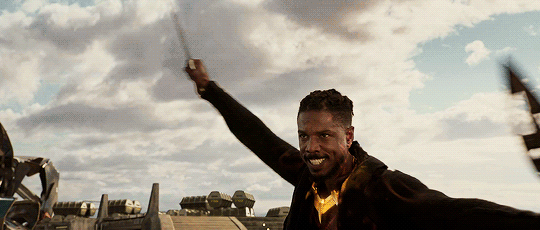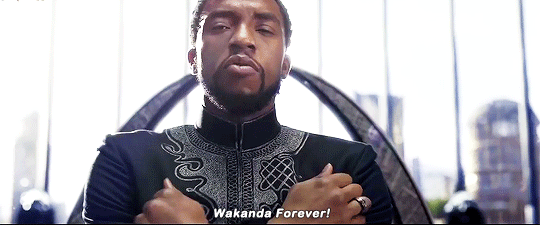35-year cinema ban to end with Black Panther screening
Saudi Arabia is set to open its cinema doors for the first time since a ban was imposed by the ultra-conservative government in the 1980s. Black Panther has been selected as the first film to screen on the 18th of April at a new AMC cinema built in the country’s capital, Riyadh. The ban had been instigated to limit the free mixing of men and women in public and to avoid endorsement of taboo behaviour in public. However, this did not stop citizens from viewing western films in the comfort of their own homes. The grand mufti of Saudi Arabia (the country’s highest religious authority) has denounced the move and described commercial films as a source of “depravity”. Of course, this is only the beginning for the country, AMC entertainment has plans to open a further 40 cinemas in Saudi Arabia in the next five years, and to increase this to 100 by 2030: creating some 30,000 new jobs.
Technically the first publicly screened films in the country since the ban was lifted in January were the critically slated, Emoji Movie and the marginally better received, Captain underpants: The First Epic Movie, which were shown in temporary local theatres in Jeddah. The choice of Black Panther as the first film for adult audiences in a permanent theatre is rather unsurprising: the popularity of the film worldwide has clearly not escaped the notice of AMC, who hope to attract record numbers of Saudis out to see the film.

Wakanda and Saudi Arabia: more than a few similarities
The fictional country Wakanda, which features heavily in the film Black Panther, bears more than a passing resemblance to the Kingdom of Saudi Arabia itself: a monarchy with vast wealth amassed from a single, widely coveted natural resource. Both countries have what are known as “command and control” economies – economies where the central government dictates production goals of raw materials: in Wakanda’s case, the indestructible metal Vibranium, and in the case of Saudi Arabia, crude oil. Wakanda also represents the Saudi dream: a strong economy with a futuristic mega-city, deeply in touch with its cultural roots.
Crown-prince Mohammad bin Salman (son of King Abdulaziz), sees himself as a reformer, much like the movie’s fictional King T’challa of Wakanda; keen to build bridges with the west. Mohammad bin Salman (MbS as he is known in the west), also hopes to vastly reform the backward gender laws in his country. Thus far, he has granted women the right to drive and relaxed laws on free mixing between men and women – setting the Kingdom on the path to becoming a more moderate theocracy. He has made special efforts to maintain good ties with western leaders- meeting president Trump very soon after his election and vocally sharing his tough stance against global terrorism- a theme that is also strongly echoed in the film. In fact, parallels have been drawn between Killmonger, the exiled terrorist son of Wakanda and Osama bin Laden, the leader of al-Qaeda and ex-member of the Saudi ruling elite. The fact that the film presents the CIA as a helpful American aid in the form of the character of Everett Ross (played by the ever-affable Martin Freeman) interestingly ties in strongly with Saudi’s historically open cooperation and strong links with the intelligence agency.

More than a few differences
Despite all of the reforms proposed by the new crown-prince of Saudi Arabia, it seems that any comparison with the fictional Wakanda are hopeful at best. The Kingdom still has a very high unemployment rate at 12.7% and it is increasing (thanks in part to volatile oil prices). Saudi society still trails far behind the rest of the world (and Wakanda) in tackling issues such as gender equality and widespread poverty amongst the lower socioeconomic classes. It is also not quite the isolationist utopia the government would like it to be compared to. The Saudi government’s involvement in the war in Yemen and continued interference in countries such as Lebanon and Qatar show that it still has a long way to go if it is to achieve the moral commendation of Wakanda.
Saudi Arabia is in a state of revolution in all senses of the word. Its lifting of the ban on movie theatres is just one step on its way; diversification of the economy away from oil will no doubt also help, but MbS’ vision for the Kingdom is far more wide-reaching. Wakanda may be a Hollywood utopia, but it is a state that Saudi Arabia is moving towards.


